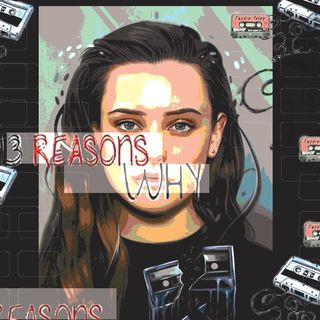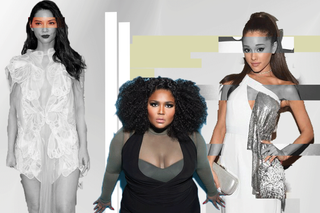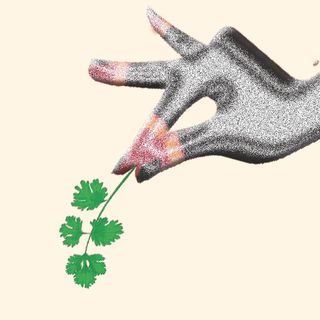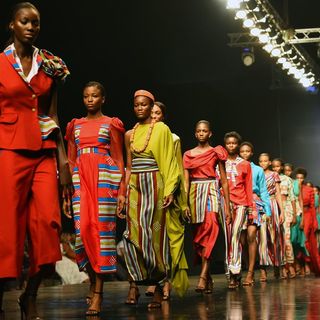
Celebrities, Please Stop Lashing Out at Your Critics
When criticism is mistaken for hate, it lowers the level of popular discourse.

Last week, American actress Olivia Munn (of The Newsroom, Iron Man 2, X-Men Apocalypse) lashed out at a fashion blog, Go Fug Yourself,because the bloggers lampooned her fashion choices. The criticism itself was of the lighthearted, tongue-in-cheek variety, but Munn took this as an opportunity to decry “fashion-policing,” calling it “vitriol” and akin to “objectifying women based on a ‘point system’,” in an essay posted on Twitter.
She equated the commentary engaged in by Heather Cocks and Jessica Morgan of Go Fug Yourself with “suppression of women” and described it as a targeted verbal assault on her own reputation and womanhood. While some of Munn’s critique of the way we conflate women’s fashion choices with their looks and bodies is valid, her decision to assert herself and make an example of two unassuming fashion bloggers — who make it a point to rid their critique of all misogyny and degradation— is misplaced. Incidentally, this isn’t the first time in the recent past that a celebrity has decided to punch down on a piece of critique and lay siege on writers who were simply trying to do their jobs.
Pop sensation Lizzo responded to a Pitchfork review of her most recent album “Cuz I Love You” by tweeting, “PEOPLE WHO ‘REVIEW’ ALBUMS AND DONT MAKE MUSIC THEMSELVES SHOULD BE UNEMPLOYED.” Which, by any logical lens, makes no sense. That’s saying anybody who doesn’t cook has no right passing judgement on a restaurant’s food, or anybody who doesn’t make movies is incapable of identifying if it’s good or trash. These types of responses are seen over and over again, as artists increasingly believe their work or actions are above reproach. If a critic dares to say anything critical, then they’re met with a barrage of self-righteous, faux progressivist rhetoric — spouted by the celebrity and their army of fans.
Take Ariana Grande, for example: When her performance with Justin Bieber at Coachella got critiqued by the celebrity news platform E!, she tweeted: “People are so lost. One day everybody that works at all them blogs will realize how unfulfilled they are and purposeless what they’re doing is and hopefully shift their focus elsewhere. That’s gonna be a beautiful ass day for them! I can’t wait for them to feel lit inside,” a comment she has since deleted. When Roslyn Talusan, a writer from Toronto, criticized Grande for devaluing the work of bloggers, Grande’s fans responded with death wishes, racist comments, and in one instance, even posted the writer’s old address online — a practice called doxxing. While the writer ended up having a constructive conversation with Grande via private messaging on Twitter, the pop star’s hesitance to condemn her fans for such toxic behavior disappointed the critic.
Related on The Swaddle:
Why Do We Still Worship Celebrities in 2018?
“When an exponential number of total strangers are firing insults and threats of all kinds at you and you don’t have the insulation of giant piles of money and a ‘team’ and being one of the most famous people on the planet, this one bad day can and will bleed into days and weeks of awful triggers. I’m still stressed out from it,” Talusan told VICE. ““I was tired of her bullshit and needed to call her out. It’s really upsetting when millionaire celebrities punch down on an industry that’s scrambling to survive.”
And that’s the crux of it: Celebrities are acting as if critics, whose literal job it is to critique artists’ work, took a lifelong, unbreakable oath to be nice to them. As if anything else is unacceptable and borders on abuse. Now, equipped with language to identify and call out online abuse, celebrities are wielding the language around issues such as rape culture and mental health, to ward off any criticism that discomfits them. Olivia Munn’s outfits, for example, are a fashion choice. If she is going to the trouble to employ stylists, walk on red carpets, create conversation around her appearance in public, and likely get paid to do so, then critics have the liberty to pass judgement on that choice without being called sexist. If Lizzo is making music and releasing it to the masses, then outlets like Pitchfork have a social responsibility to provide insight into the work and help fans come to an informed opinion as to it’s value. If Ariana Grande’s concert is a let down, or she is appropriating black and brown culture for her own professional benefit, then the writer calling it out deserves an environment where they could express their thoughts without being made to feel unsafe.
But when celebrities are the ones engaging in toxic behavior from the top down, such as when Nicki Minaj wrote to music critic Wanna Thompson “eat a dick u hating ass hoe,” it’s difficult to expect anything better from the millions of stans who worship these artists. And yes, bad reviews have the power to obscure artists’ work, and maybe cause some disappointment and sadness. But in no way should those feelings be disguised as righteousness and weaponized against people who most probably have a quarter of the influence and power these celebrities have. Additionally, any criticism directed at celebrities is most likely never handled by the person themselves, what with the privilege of getting an army of publicists to handle any backlash. As for the critics, they usually have to deal with the onslaught alone and with far fewer resources at their disposal, while also probably dealing with the everpresent threat of budget cuts — a common reality for most journalists today.
Related on The Swaddle:
Why We Look to Celebrities to Save, Advise Us — Even When They’re Wrong
For example, when the team of Chance the Rapper was dissatisfied with a negative review on MTV’s Snapchat channel, they threatened the network that Chance would never work with them again, which resulted in MTV ultimately taking it down, Spin reported. The important thing to understand is the critic and the celebrity have a mutually beneficial relationship — critics need something to critique, and celebrities need that critique in order to reach an audience and improve. To threaten to cut ties with someone, or unleash violently eager fans on them, not only has the power to rid networks, publications and writers of their integrity, but also compromises what audience consumes as art criticism. Ultimately, the level of discourse falls, and we’re all disappointed.
Olivia Munn writes in her essay, “Social media, with its instant feedback, has been integral in adjusting how we all think, speak and act. Before, we may not have known that certain verbage [sic] or jokes were offensive or not coming across as we intended. But now there’s no excuse for ignorance.”
Oh, the irony. Sigh.
Rajvi Desai is The Swaddle's Culture Editor. After graduating from NYU as a Journalism and Politics major, she covered breaking news and politics in New York City, and dabbled in design and entertainment journalism. Back in the homeland, she's interested in tackling beauty, sports, politics and human rights in her gender-focused writing, while also co-managing The Swaddle Team's podcast, Respectfully Disagree.
Related


The Feminist Revolution Can Happen in the Kitchen
